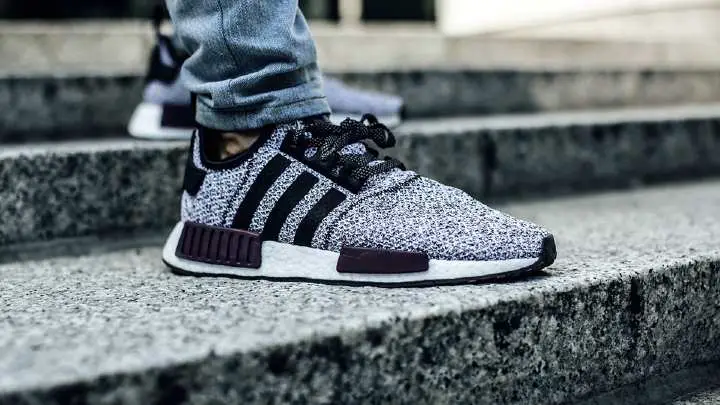Whether you have dry, oily, or combination skin, knowing how to hydrate your skin is a necessity to achieve healthy, radiant-looking skin.
But how exactly does hydration affect your skin? And what are some tips to keep your skin hydrated? Keep reading to find out!
The skin is the largest organ of the body and it needs just as much TLC as your other organs. Your skin protects you from germs, bacteria, and other dangers. It also regulates your body temperature and keeps you comfortable in any type of weather.
Skin hydration is important for maintaining healthy-looking skin, it helps to balance the water level in your skin cells.
It is also important because it helps to protect you from environmental damage and premature aging.
Thankfully, there are many ways to hydrate your skin. So, if you’re looking to maintain healthy skin all year round, these are some of the best tips and tricks for keeping your skin hydrated.

How to Hydrate Skin
When it comes to skin health, water has many benefits. Skin hydration may help prevent conditions such as dryness, acne breakouts, wrinkles around the eyes, eczema flare-ups, hair loss, or thinning hair.
Skin hydration helps your skin to retain its water content without you being aware of it. It also helps to nourish your skin giving it a soft, brighter appearance.
But with so many factors like weather changes or allergies affecting your skin’s water levels, your skin is constantly changing and so are your needs for moisture. Here are some tips to keep your skin hydrated.
SEE: Is Aloe Vera Good for Your Skin? See What It Works For Here
1. Drink More Water
This is the first and most important step to hydrating your skin. In addition to regulating the body’s temperature and flushing out toxins, drinking water has many benefits, including keeping your skin hydrated.
In order to maintain a healthy appearance, drink the recommended 8 glasses of water each day. How much you need in order to stay hydrated can also depend on your age and activity level.
Drinking plenty of water is essential for hydrated and healthy skin from the inside out.
2. Stay Away From Hot or Long Showers
We all know a hot or long shower feels good, but unfortunately, it could be damaging to your skin. Hot water can dry out your skin, and long showers can cause dryness too.
It’s because hot water strips the natural oils and moisture from your skin. The hotter the water, the more that will be stripped away. If you want healthier and hydrated skin, then avoid taking hot or long showers.
Soak in a warm bath instead, it will help to soften your skin and keep it hydrated. You’ll also save money on water bills.
3. Exfoliate Regularly
To avoid having dry, dehydrated skin, it’s crucial that you exfoliate at least once per week, or more if needed.
Exfoliating regularly removes dead skin cells that build up on the surface of your skin and prevent your moisturizer from penetrating deeply enough. Removing these dead skin cells helps your skin to retain moisture and stay hydrated.
Beyond that, exfoliating can also lead to smoother skin. If you suffer from breakouts or rough patches, exfoliation can help make them a thing of the past, giving you a 3 in 1 total package.
SEE: How to Exfoliate Your Skin: Your Skin Type Is Your Safety Compass
4. Apply a Moisturizer
Moisturizing is an essential part of a daily skincare routine. It keeps your skin hydrated by sealing moisture.
Using a moisturizer can also help your skin to heal from sunburns and other irritants, reduce redness, and prevent wrinkles.
When choosing a moisturizer, look for those that contain:
- Hyaluronic acid (to help retain moisture).
- Mineral oil, glycerin, or petroleum jelly (to trap moisture).
- Dimethicone or Cyclomethicone (to help form a protective barrier on the surface of the skin).
- Aloe vera gel (to soothe the skin).
You should apply moisturizer before you go to bed at night and right after you wash your face in the morning. You can also apply a moisturizer as many times during the day to keep your skin hydrated.
5. Use a Face Mask
Another way to keep your skin at its healthiest and promote hydration is by using a face mask.
It is a beauty essential for healthy and hydrated skin. You can use a face mask as often as you want, from once a week to once a month.
Face masks work by providing moisture to your skin in order to hydrate it from the inside out. They also have ingredients that will improve and brighten your skin’s appearance while repairing any damage on the surface.
Using a face mask is a great way to give your skin a dose of hydration and nutrition. They’re inexpensive, easy to get, and simple to use.
6. Invest in a Humidifier
Investing in a humidifier for your home is something you should consider, especially during dry winter months. A humidifier is a device that cools, warms, or mixes air with water and releases it into the surrounding environment.
The water vapor from a humidifier helps to hydrate your skin. Humidifiers can also help to relieve headaches and allergies.
This effect is most noticeable when you use a personal humidifier in your bedroom. Run it overnight for the best results.
7. Use Water-based Skincare Products
It is important to understand that there are different skincare products available in the market. To find the right skincare products for you, it is very important to know which ingredients are right for your skin.
Water-based skincare products contain water as their key ingredient and hydrate the skin. These products are great to use because they don’t have any oils and won’t clog your pores. What’s more? They can be used on all skin types.
What Hydrating Ingredients Do You Look for Before Buying Skincare Products?
When buying skin care products, look for products that contain hydrating ingredients such as:
Humectants
Humectants are ingredients in products that attract and retain water. They work to keep skin hydrated by helping to bind moisture to the skin.
Humectants work by attracting and holding onto water molecules from the air or from other products. This process can help with skin hydration, which is especially beneficial for those with dry or sensitive skin.
The most common humectants are glycerin, honey, propylene glycol, and urea.
Occlusives
They are used in skincare to coat the skin and protect it from evaporation. Occlusives work by forming a protective barrier on the outer surface of the skin.
This barrier can be created with ingredients such as petrolatum, mineral oils, lanolin, beeswax, cocoa butter, and shea butter. The intent is to maintain the integrity of the skin’s surface by stopping water loss and trapping moisture in.
They’re also known as waterproofing agents because they seal in moisture to soften and hydrate the skin.
Ceramides
These are ingredients in skincare that hold the skin cells together. They do this by keeping the skin’s natural moisture barrier intact. They also help to maintain the water content of the cells and seal out impurities.
If you start to lose ceramides from your skin, then you start to get dry and irritated skin. It’s important to use products with ceramides because they will help your skin stay hydrated and balanced.
SEE: Essential Products You Need In Your Skincare Routine for Dry Skin
8. Avoid Alcohol and Caffeine
Drinking a lot of alcohol and drinks that contain caffeine (for example, coffee) can deplete your skin’s natural moisture. Despite its name, alcohol is actually a diuretic, which means it will make you pee more often.
For this reason, it increases dehydration and makes your skin look dry. Coffee also makes you lose water because it’s a diuretic and caffeine is a well-known thirst-inducer.
These two drinks can make your skin drier than it already is. So to keep your skin hydrated, try to avoid them altogether.
The best fluids for your skin are hydrating drinks like water, low-fat milk, fruit juice, and herbal tea. To keep your skin hydrated, drink plenty of them throughout the day.
9. DIY a Banana Face Mask
Bananas are a great way to nourish and hydrate your skin. The vitamin A present in bananas helps to restore your skin moisture, making it hydrated and healthy.
- Take one fresh banana and mash it in a bowl.
- Add 2 tablespoons of honey and one tablespoon of coconut oil.
- Mix thoroughly and apply on a cleansed face.
- Leave on for 15-20 minutes.
- Wash it off with warm water.
By following these simple steps you can ensure that your skin will be soft, hydrated, and smooth in no time.
10. Eat More Healthy Foods
Healthy whole foods are important when it comes to hydrating your skin; this is because they contain more nutrients than processed foods.
Having a healthy diet by eating foods that contain nutrients like water and antioxidants is a great way to nourish your skin and keep it hydrated.
These include:
- Fruits: Fruits such as watermelon, apples, and grapefruit contain vitamins that promote healthy collagen production.
- Vegetables: Vegetables such as broccoli and potatoes have high levels of vitamins, which help fight against skin oxidation.
- Nuts and seeds: Nuts and seeds such as almonds, peanuts, sesame seeds all contain omega fatty acids, which aids absorption.
Ensure to eat more of these foods for healthy and hydrated skin.
11. Use an Emollient Cream
Emollients are skincare products that help to soften and soothe the skin. They hydrate your skin by providing it with extra moisture.
Some common ingredients found in these products include vaseline, mineral oil, petrolatum, glycerin, lanolin, or shea butter.
You can find emollients in many forms. Some of the most common forms are creams, ointments, and lotions. You can also find them in powders and sprays if you prefer a non-greasy application.
- Put a small amount of the cream in your palm.
- Rub your palms together until the cream is evenly distributed.
- Apply to the face or body.
- For maximum benefits, apply emollient cream at night.
12. Sunscreen, Sunscreen, Sunscreen
You probably know that sunscreen protects your skin from sunburns, prevents skin cancer, wrinkles, and other age-related changes. However, what you might not know is how sunscreen can actually hydrate your skin.
UV rays are the major cause of premature aging and wrinkles in the first place, so this is an important way that sunscreen provides hydration to your skin.
UV rays lead to sunburns which cause loss of water from the skin cells (and dehydration). Luckily, sunscreen provides protection against UV rays and prevents sunburns.
This leaves your skin cells intact with healthy water levels—which leave your skin hydrated.
Signs of Skin Dehydration
- Flaky Skin
- Dull Skin
- Dark Under-eye Circles
- Increased Skin Sensitivity
SEE: How to Do Facial at Home: 7 DIY Steps to Achieve a Glowing Face
FAQs

How can I hydrate myself quickly?
Drink a lot of water. Drinking enough water is the quickest way to maintain your body’s fluid balance and prevent dryness. It also improves the function of your kidneys, liver, heart, and other organs.
For better-looking skin, drink the recommended 8 glasses of water each day.
Which fruits are best for my skin?
Fruits like watermelon, oranges, apples, and grapefruit are rich in water which hydrates your skin. They also contain vitamin C which promotes skin elasticity by increasing collagen production.
Is it important to hydrate my skin?
Yes, it is. Hydrating your skin helps to maintain a good level of moisture in the skin, this, in turn, gives it a more youthful appearance and lessens the risk of wrinkles.
When your skin lacks moisture, it can become dry, itchy, red, and irritated, this can cause acne breakouts and other skin-related issues.
Conclusion
When your skin lacks water, it can become dry, itchy, flaky, chapped, or scaly. This is because water is essential for retaining the moisture content of your skin cells.
You should know that dehydration affects the water content in your skin cells and causes your skin to look pale, puffy, and wrinkled. It can also lead to hair thinning, mood swings, and headaches.
To avoid these consequences dehydration can have on you, ensure to keep your skin hydrated at all times.
Skin hydration is important for a healthy and youthful-looking complexion. It is also the key to keeping your skin smooth, elastic, and tight.
Thanks for reading.
Africana fashion provides you with beauty articles to improve your lifestyle.






